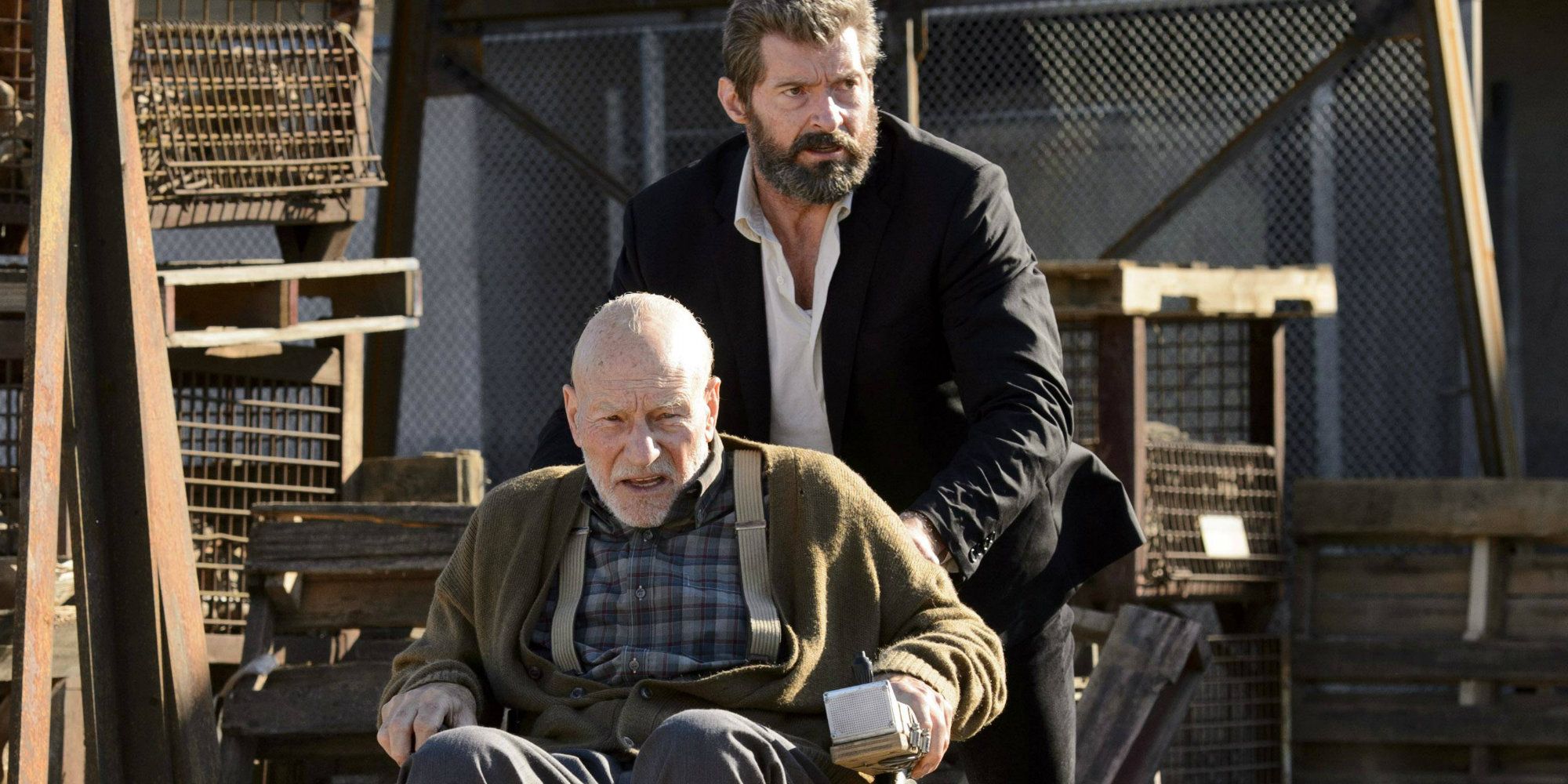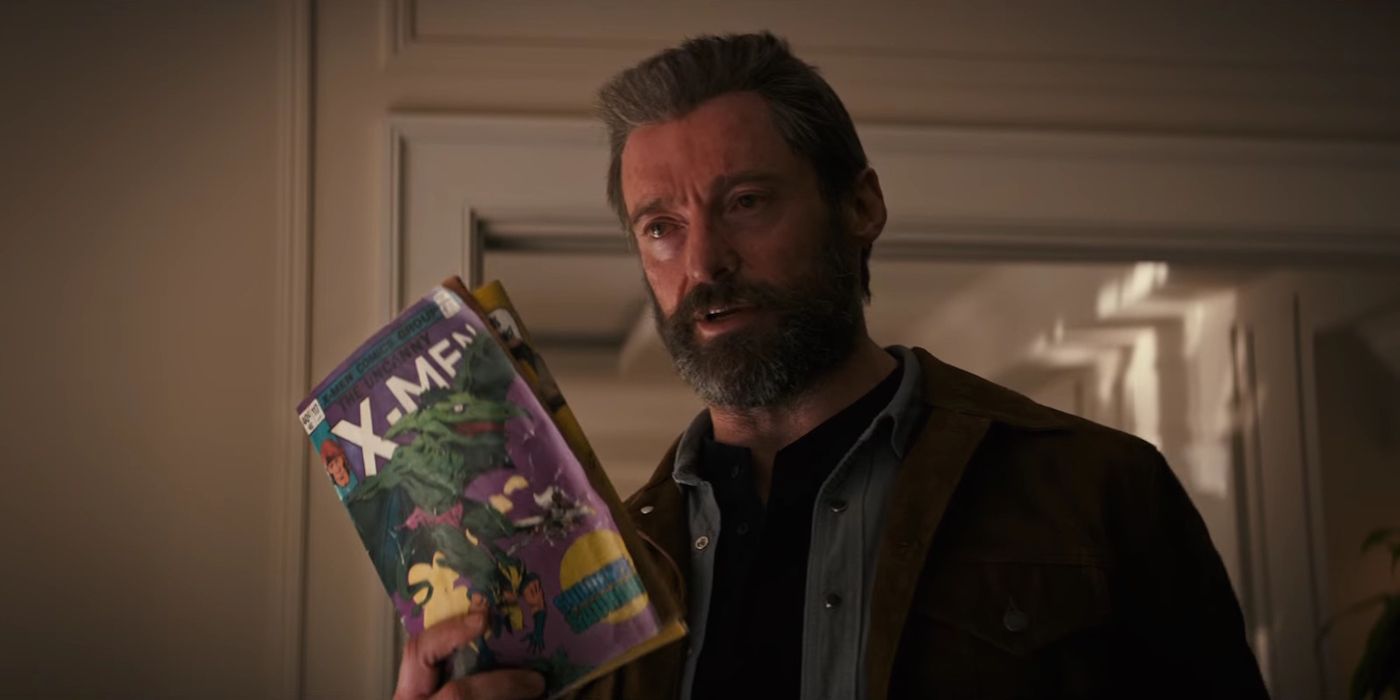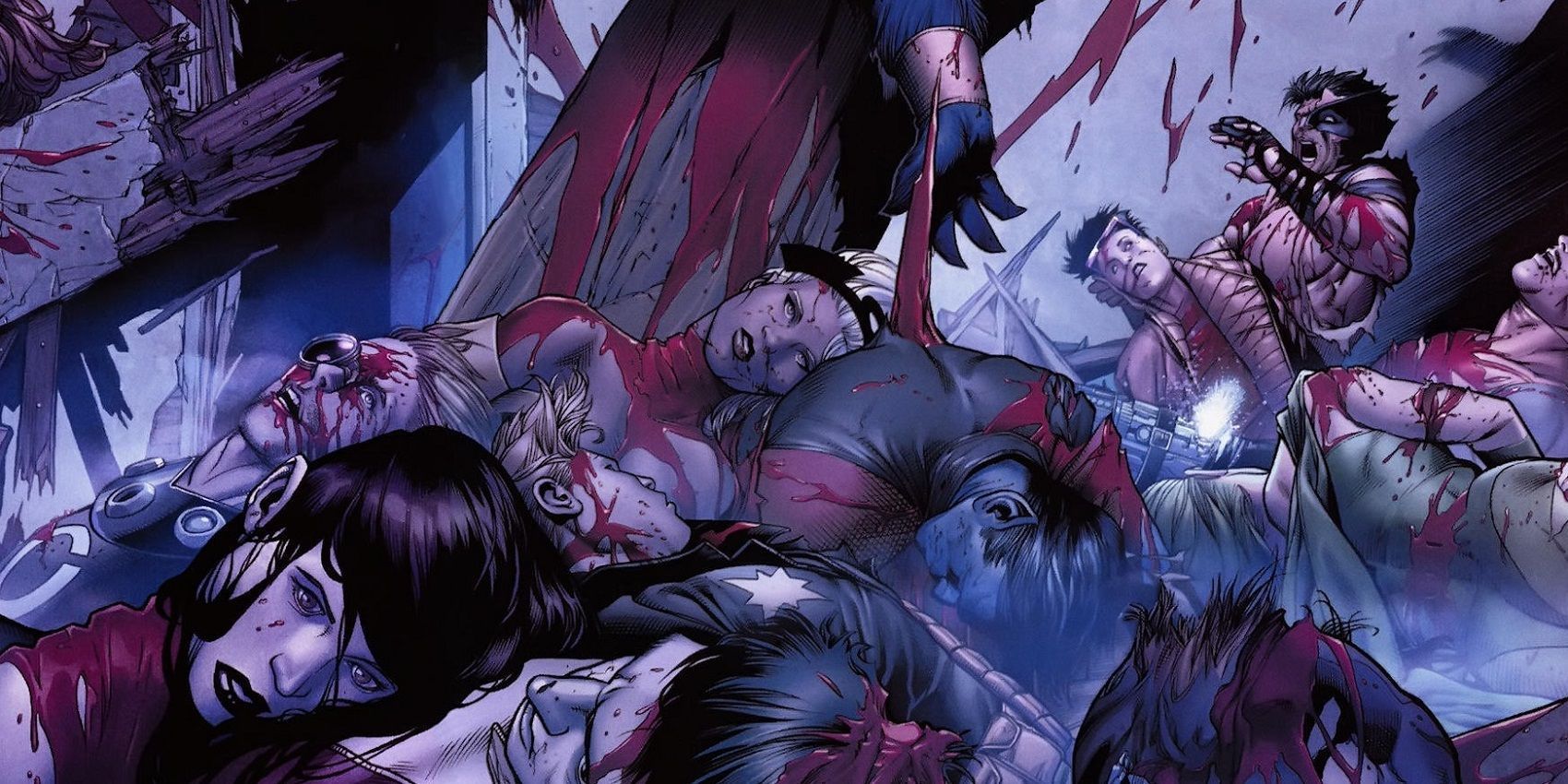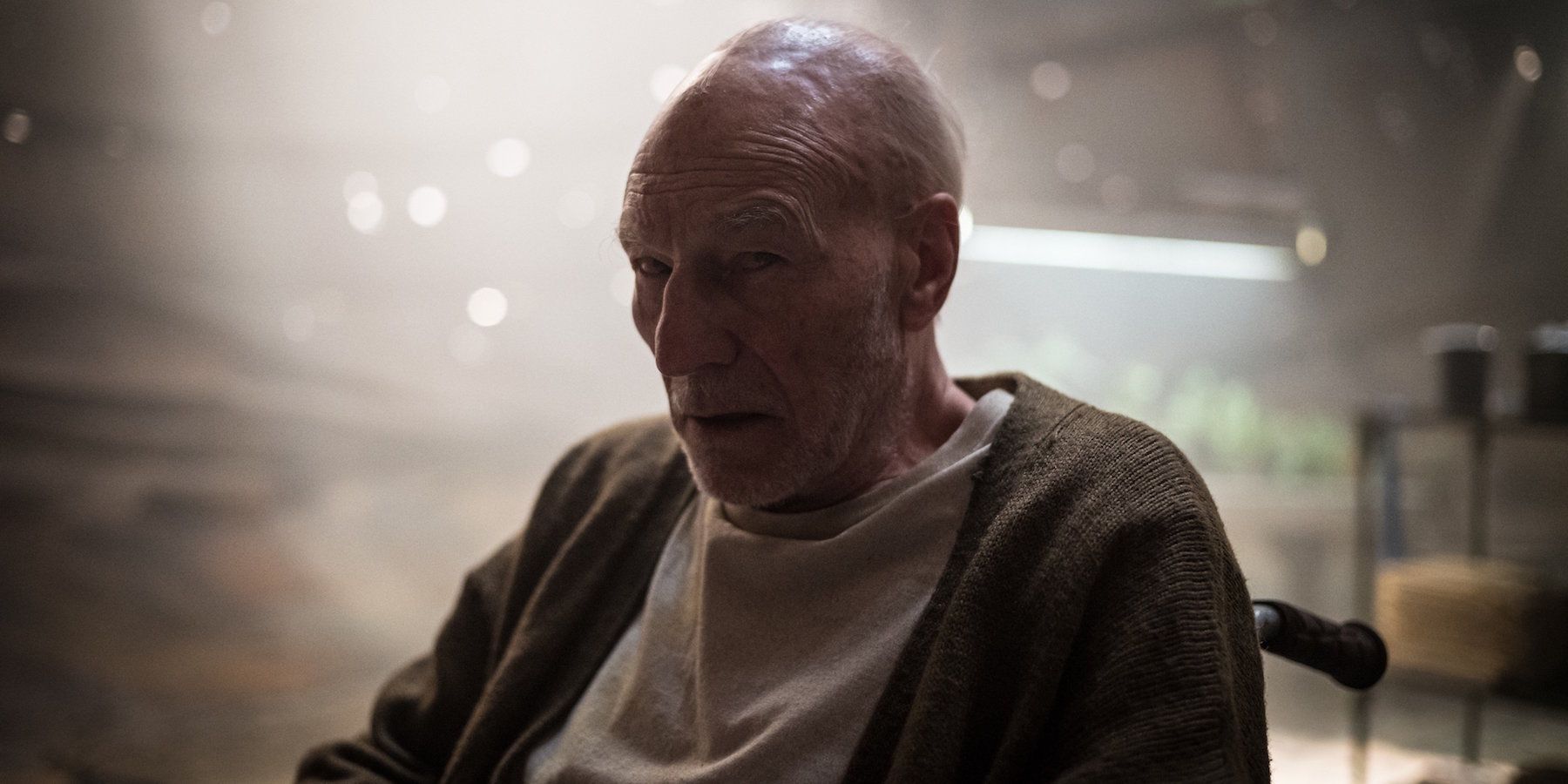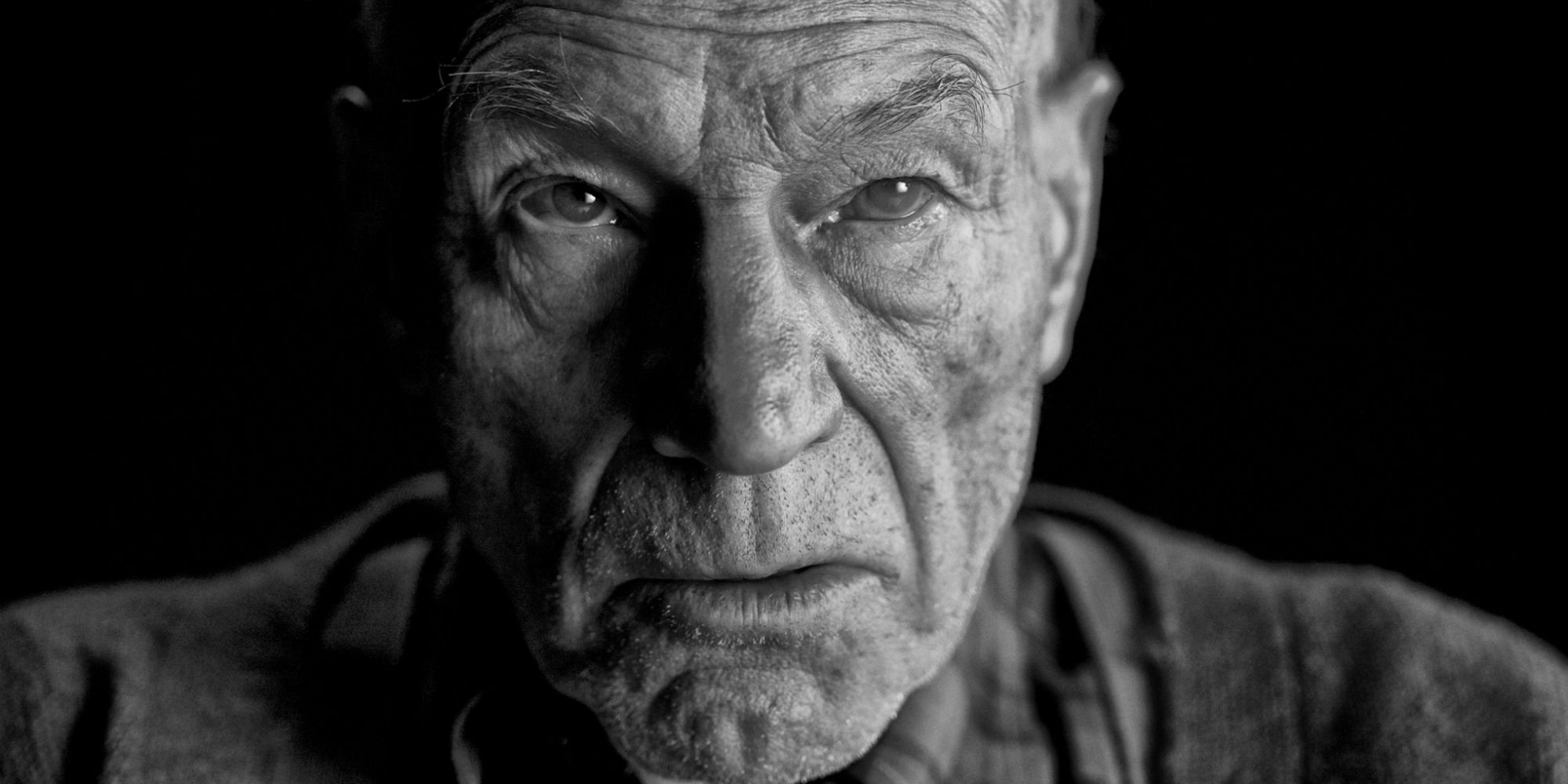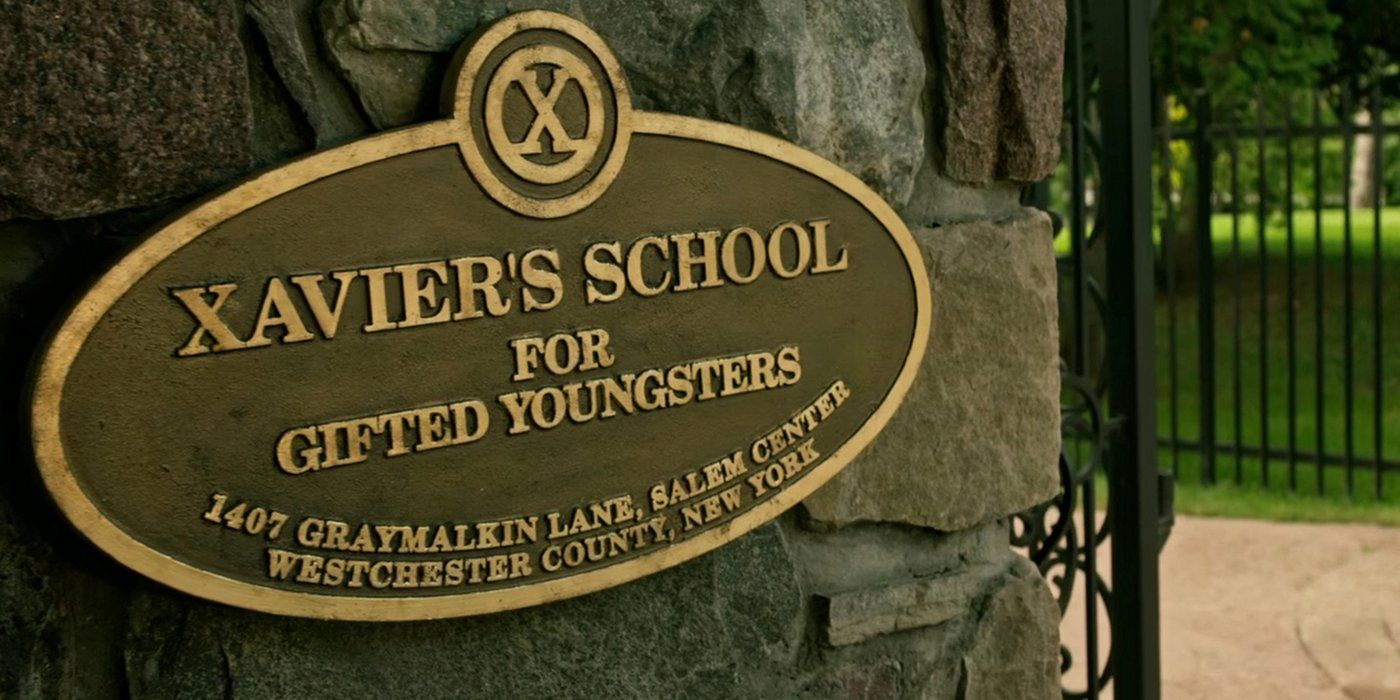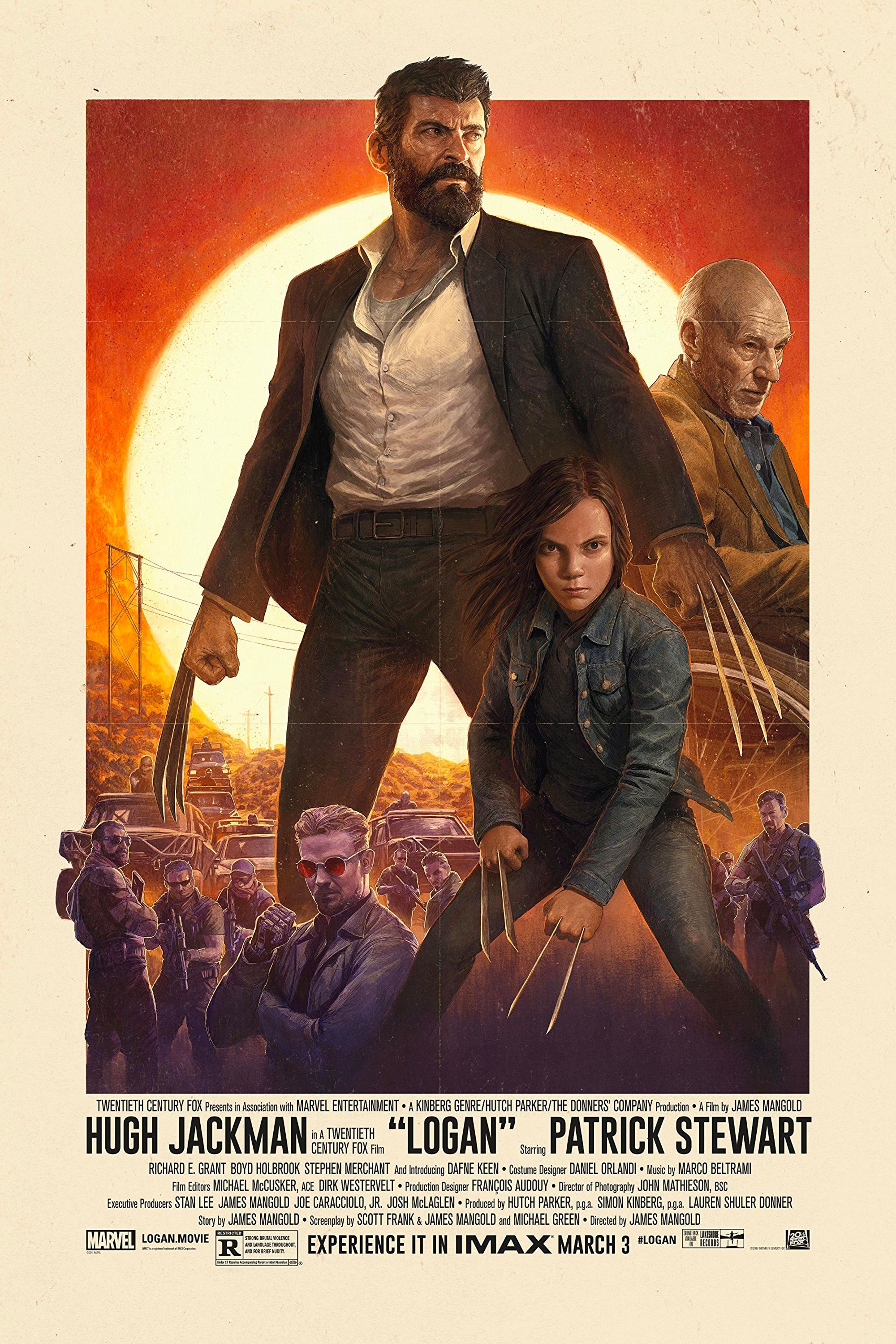Warning: Major SPOILERS for Logan ahead
-
For all the praise that tends to be heaped on each new iteration of "dark" superhero stories, you'd be forgiven for not realizing that darkness has been something of a default setting for the genre for about as long as comic book adaptations have been viable as movie properties. When it comes to the cape and cowl set, darkness is where things tend to migrate; maybe less egregiously so for the Marvel Cinematic Universe features but definitely for Fox's X-Men movies and overwhelmingly so for Warner Bros' DCEU - which just finished unironically dropping an R-rated movie about Superman onto Blu-ray.
But even if it can't lay claim to being the darkest superhero movie ever released, Hugh Jackman's much-ballyhooed final turn as Wolverine in Logan is none the less doing something very different within the genre: A movie about disappointment. Whereas even fairly bleak entries like Captain America: Civil War (where the previously Besties-For-Life Avengers go through a brutal break-up) still lean on the ideal of superheroics as escapist fantasy. Logan is all about getting stuck with an ending you didn't want, accepting that that you failed, realizing your life is coming to a bad end... and then having to keep going anyway.
It's a theme that Logan makes resonate for its audience by delivering some well-placed intentional let-downs of its own: "Chekov's gun" setups that would telegraph big crowd-pleaser reveals in other superhero flicks instead sputter out to glum finishes. Story threads lingering since the first X-Men movie are given banal, pointless sendoffs instead of epic goodbyes. But Logan saves its harshest, nastiest kick in the adamantium-reinforced cojones for it's biggest mystery: Where did all the other X-Men go?
FANBOY FAKE-OUT
Part of what makes Logan's commitment to tormenting the emotions of its audience so impressive is how insightfully it targets various strata of X-Men fandom. It's basic setup (an oddly-aging Logan and an ailing Professor X are the last mutants left in a dystopian near-future world) deliberately recalls a popular - if also divisive - 2008 graphic novel called Old Man Logan; a similarity that has excited and worried fans in equal measure since the project was first announced.
Set in a dark alternate future of the Marvel Comics Universe, Old Man Logan (written by Civil War and Kick-Ass scribe Mark Millar) also features an aged Wolverine - one who refuses to use his claws or even acknowledge his "Wolverine" personal owing to an unspeakable past sin he won't forgive himself for: The (unwitting) mass-murder of all his fellow X-Men. Granted, Logan had been tricked into perceiving as an army of enemies by illusionist Spider-Man foe Mysterio, but the experience has shattered him (and unnerved readers) all the same.
Understandably, the implications that Logan would borrow its story inspiration from Miller's bleaker-than-bleak tale had fans wondering whether that particular detail would carry over for months - and the film seems keenly aware of this expectation. But, because it's a film about disappointment, Logan opts to tease at that plot point only to deliver an even bigger gut-punch:
Wolverine didn't kill the X-Men. Charles Xavier did.
THE WESTCHESTER INCIDENT
As the film opens, Logan is acting as provider and caregiver for Xavier, who is suffering from an unrevealed debilitating brain disorder which (as you'd surmise) is a bad turn of affairs for a being whose mind is gifted with mutant psychic powers that can have devastating effects on the world around him. In order to stave off seizures that (literally) shake the world around him, Logan keeps his old mentor sedated with drugs - which Xavier not only resents, but angrily believes are also keeping him from remembering something bad the clawed mutant did to bring them to this point.
For about half its runtime, Logan plays it coy as to exactly what it is Xavier doesn't remember. We're informed via incidental dialogue happening on the periphery of the main story that the X-Men are gone, that the public's understanding of what they even were has been distorted via comic books once published to embellish their exploits and that (for, it turns out, entirely separate reasons) the Mutant species itself has effectively "died off;" but what actually went down is a mystery.
But then, at midpoint, Logan, Xavier and their young charge Laura (aka "X-23") find themselves cornered by their enemies in a Reno, Nevada hotel - and escape only because Xavier (who had disobeyed Logan's instructions to stay on his medication) unleashes his telepathic powers to paralyze their attackers... but also every other human being in the hotel. As they depart, the onetime Professor X (now reduced to childlike senility by his disease) is overcome with grief; crying out in apology to the hundreds of innocent people he now realizes he inadvertently injured.
Later, Logan himself catches a news broadcast about the "mysterious" happenings at the hotel, which the radio news anchor describes as being similar to "the incident in Westchester New York" - which famously claimed the lives of "several" of the X-Men.
WHAT DOES IT MEAN?
Symbolically, it's pretty easy to work out: Wolverine and Professor X have now completely changed places in terms of their relationship dynamic. Now Xavier is the dangerous human-weapon in need of supervision and direction, with Logan as the cautious caregiver working to keep him in check.
In plot terms, it means exactly what it says it means. The X-Men are gone, so no one is coming to rescue Logan and his ever-dwindling number of allies. What, precisely, it was that Xavier did to them is left purposefully vague (no flashbacks, no explicit out-loud admissions) as part of Logan's dogged refusal to confirm whether it's meant to be the "official" end to the X-Men saga or merely one plausible future of many - because it knows that X-Men fans want those answers, and this is a movie about disappointment. And in the broadest sense, it means that Logan is 100% serious about centering disappointment as its emotional core.
Even audiences who didn't read Old Man Logan (read: most audiences who will see Logan) are likely to assume that Wolverine might himself have been the cause of whatever tragedy made him the last of the X-Men. The entirety of Wolverine's character (and the appeal thereof) is bound up in the idea of a barely-contained murder-machine whose redemption is only - if at all - possible in choosing to point himself at the right targets. The prospect of his berserker fury being unleashed against those he loves has been framed as his greatest fear in the various comics and cartoons, and it's been present in the X-Men movies since the famous scene in the original where he accidentally stabs Rogue square through the chest after she startles him awake.
Wolverine slaughtering the X-Men, however tragic, is an ending that the audience has been led to expect - whether as part of an alternate future, a "true" ending, a fantasy sequence, etc. It makes sense. It "fits." You don't necessarily want to see it, but at least it feels narratively appropriate, like something that's supposed to happen in the broader context of the X-Men mythos. It's a grim finale, but an appropriate one - like something out of a Greek tragedy.
But Charles Xavier being responsible? That's a dagger through the heart of the entire moral compass of the X-Men concept - especially since he didn't "turn evil" or get hijacked by one of the villains in order to make this happen. Much like the Harry Potter series, X-Men draws a lot of it's appeal to younger audiences from the fantasy of benevolent refuge: Xavier's School For The Gifted as the ultimate "safe space" school environment for misfit kids with Professor X himself as the ideal of the protective, nurturing teacher/counselor. Thanks in no small part to Stewart's unique voice and thoughtful performance of the character, it's no exaggeration to say that the X-Men movies' version of Xavier has become a memetic shorthand for reassuring, benevolent authority... a surrogate father figure for a whole generation. The idea of that "father" not only accidentally blowing up everything we've seen him build up over a lifetime with no rhyme or reason beyond random human frailty?
There's no poetry in that - that's just cold; tonally-appropriate final slap in the face to anyone expecting Logan to morph back into an X-Men movie at some point. Whether it implies anything beyond that coldness remains to be seen (i.e. the question of whether or not this is an "official" future and/or if it will continue) but for now it stands alone as the darkest depth of a film with the guts to deliberately let its audience down.

